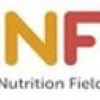Benefits of Breastfeeding PDF
Document Details

Uploaded by NNFTKnowledgeChecker
Tags
Summary
This infographic details the benefits of breastfeeding for infants, encompassing improved cognitive development, reduced risk of childhood obesity, and decreased risk of infections and illnesses. It also emphasizes the economic advantages and importance of a well-balanced diet for mothers.
Full Transcript
INFORMATION FOR HEALTHCARE PROFESSIONALS TO GIVE TO PARENTS Benefits of Breastfeeding Breastfeeding has significant nutritional and immunological benefits for your baby both short and long term Improved intelligence and cognitive outcomes Reducing the risk of overweight and obesity in childhood & la...
INFORMATION FOR HEALTHCARE PROFESSIONALS TO GIVE TO PARENTS Benefits of Breastfeeding Breastfeeding has significant nutritional and immunological benefits for your baby both short and long term Improved intelligence and cognitive outcomes Reducing the risk of overweight and obesity in childhood & later in life Reduced risk of infection (gastrointestinal, respiratory, ear, and so on) Reduction in infant mortality due to infectious diseases Improved infant gut health Improved appetite regulation Reduced risk of developing non-communicable diseases, such as diabetes and cardiovascular diseases Fewer dental malocclusions References: 1. Victora, C. G. et.al, The Lancet 2016, 387, 475-490 2. DiSantis et al., Int J Behav Nutr Phys Act 8, 89 (2011). IMPORTANT NOTICE: The World Health Organisation (WHO) has recommended that pregnant women and new mothers be informed on the benefits and superiority of breastfeeding – in particular the fact that it provides the best nutrition and protection from illness for babies. Mothers should be given guidance on the preparation for, and maintenance of, lactation, with special emphasis on the importance of a well-balanced diet both during pregnancy and after delivery. Unnecessary introduction of partial bottle-feeding or other foods and drinks should be discouraged since it will have a negative effect on breastfeeding. Similarly, mothers should be warned of the difficulty of reversing a decision not to breastfeed. Before advising a mother to use an infant formula, she should be advised of the social and financial implications of her decision: for example, if a baby is exclusively bottle-fed, more than one can (400 g) per week will be needed, so the family circumstances and costs should be kept in mind. Mothers should be reminded that breast milk is not only the best, but also the most economical food for babies. If a decision to use an infant formula is taken, it is important to give instructions on correct preparation methods, emphasising that unboiled water, unsterilised bottles or incorrect dilution can all lead to illness. SMA® Nutrition UK & Ireland | ®Reg. Trademark of Société des Produits Nestlé S.A ZTC5491/07/21